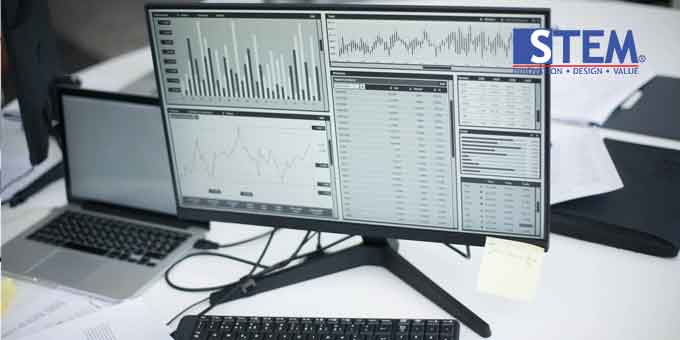SAP ERP is the world’s most popular Enterprise Resource Planning system, and its modules provide companies with many benefits to automate and simplify management operations.
From financial planning modules, human resource management, and inventory management to customer relationship management modules, this article will provide an overview of the most commonly used SAP ERP modules.
1. SAP S/4HANA
SAP S/4HANA is the latest version of the SAP ERP system and is designed to replace the previous version, namely SAP ECC.
SAP S/4HANA comes with a modern and easy-to-use User Interface (UI) and new, more sophisticated features. This system is designed to help companies manage various aspects of their business, including finance, inventory, production, sales, and marketing, in one integrated platform.
SAP S/4HANA can also be installed in the cloud or on-premise.
In addition, this system uses in-memory computing technology for data processing in real-time, enabling companies to make business decisions more quickly and accurately.
Some of the advanced features in this system, such as predictive analytics, artificial intelligence, and natural language processing, help companies understand and utilize their data more effectively.
2. Finance Module (SAP ERP Financials & Controlling Module)
SAP ERP Financials & Controlling is one of the SAP ERP modules that focuses on financial management and business control.
This module includes several features and functions designed to help companies manage their financial and accounting aspects, such as transaction processing, payments, financial planning, and financial reporting.
Some of the benefits of using the SAP ERP Financials & Controlling module include the following:
- This module is integrated with other SAP ERP modules so that financial and business data are connected and related.
- Fast and accurate transaction processing can produce more accurate and up-to-date financial reports.
- Sophisticated and flexible financial reporting, so companies can produce financial reports that suit their needs more easily and quickly.
- Effective financial budget planning and management.
- Better business controls, such as risk management and internal controls, so companies can minimize risks and increase the effectiveness of their business controls.
3. Maintenance Module (SAP Plant Maintenance Module)
SAP Plant Maintenance Module is a module of SAP ERP software designed to assist companies in managing maintenance and maintenance of production equipment and facilities.
This module includes features and functionality spanning the entire lifecycle of equipment and facilities, including preventive maintenance, periodic maintenance, and emergency repairs.
Some of the features and benefits of the SAP Plant Maintenance Module include the following:
- Preventive Maintenance: Useful for planning and carrying out scheduled preventive maintenance actions on equipment and production facilities. Thus, the company can prevent damage and avoid greater repair costs.
- Periodical maintenance : Can be used to organize and carry out periodic maintenance on production equipment and facilities, such as routine repairs or replacement of obsolete parts. This can help companies extend equipment life and ensure optimal performance.
- Emergency Repairs: Module for tracking and coordinating emergency repair actions on equipment and production facilities. This can help companies reduce production downtime and minimize losses due to production interruptions.
- Planning and Scheduling: Used to plan and organize maintenance and repair schedules on production equipment and facilities so that companies can optimize the use of resources and ensure that production equipment and facilities are always ready for use.
- Performance Analysis: Module that can be used to analyze the performance of production equipment and facilities, as well as monitor maintenance and maintenance costs. Thus, companies can make better decisions about managing their production equipment and facilities.
By utilizing the SAP Plant Maintenance module, companies can manage the care and maintenance of their production equipment and facilities more effectively, thereby increasing productivity, reducing costs, and maximizing their production performance.
4. Sales and Distribution Module
SAP Sales and Distribution (SD) Module is an ERP module designed to assist companies in managing their product sales and distribution processes.
The sales and distribution module includes various features and functions to manage activities ranging from contract and customer order management to goods delivery and billing.
Some of the features and benefits of the SAP SD Module include the following:
- Sales Order Management: To receive sales orders from customers and manage order processing efficiently, from order confirmation to goods delivery.
- Contract Management: Useful for managing sales contracts with customers, including payment, delivery of goods, and delivery schedules.
- Inventory Management: Manage the company’s product inventory, including product stock and delivery of goods.
- Customer Management: This module allows companies to manage customer information, such as contact data, sales information, and goods delivery information.
- Billing: Module for creating invoices and managing customer billing processes.
By leveraging the SAP SD module, companies can manage their product sales and distribution processes more effectively, ensuring customer orders are processed promptly and minimizing the risk of irregular or incomplete product deliveries.
In addition, this module also helps companies to improve shipping and billing processes, thereby increasing customer satisfaction and maximizing business profitability.
5. Supply Chain Management (SCM) Module
SAP Supply Chain Management (SCM) Module is an SAP ERP module to assist companies in managing supply chains. This module includes various features and functions to optimize the process of procurement, production, and distribution of goods and services.
Some of the features and benefits of the SCM Module include the following:
- Supply Chain Planning: Useful for planning the production and delivery of products to optimize the supply chain and ensure timely product availability.
- Order Management: Manage orders from customers and process them quickly and efficiently, from ordering to shipping goods.
- Inventory Management: This module allows companies to manage their product inventory, including product stock and delivery of goods, as well as ensure that the products ordered are in stock and ready for shipment.
- Supply Management: Manage relationships with suppliers and ensure timely and quality delivery of raw materials.
- Shipping Management: Useful for managing product delivery and distribution processes, including domestic and international shipments.
By leveraging the SAP ERP Supply Chain Management module, companies can improve efficiency and productivity in their supply chain, ensure timely product availability, reduce procurement, production, and distribution costs, and improve customer satisfaction.
In addition, the SCM module helps companies plan efficient production and reduce the risk of excess or inventory shortage, thereby increasing business profitability.
Thus a brief explanation of the SAP ERP module that is most often used by several companies that have used SAP Business One as their management software. Apart from that, you can also read how to integrate SAP Business One with other applications so that the functionality runs smoothly.
Suppose you want to consult about an SAP ERP system to suit your company’s needs. In that case, you can contact us or visit sterling-team.com because we have a team of certified and experienced SAP consultants ready to help your company become more efficient and successful.


